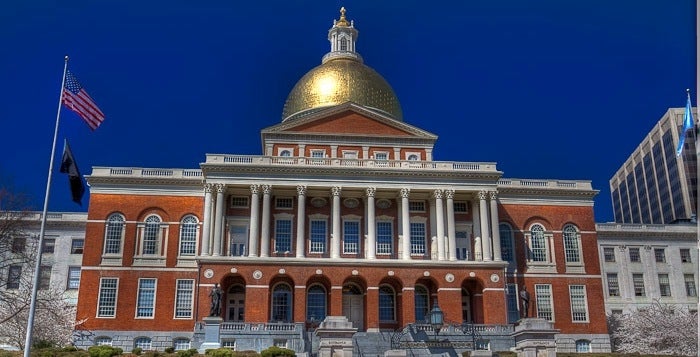Mass. passes ride-hailing legislation
 Courtesy Photo
Courtesy Photo
A late-night deal struck between House and Senate lawmakers to regulate app-based ride-hailing services like Uber and Lyft would not ban those services from operating at Logan Airport or the South Boston convention center and would charge those companies a 20-cent per ride surcharge for infrastructure improvements.
The compromise bill, which lawmakers struggled with to find the right balance between regulation and public safety without stifling innovation, would also set insurance thresholds for ride-hailing companies and require a two-step background check for drivers.
The deal was inked by negotiators at about 11 p.m., with just an hour remaining in formal sessions for the year. The bill still requires a series of favorable votes in both branches to reach Gov. Charlie Baker's desk.
Taxi drivers and some in law enforcement had pushed for the state to mandate fingerprinting of all drivers, but neither branch favored that approach leading into negotiations.
"I think it will help all of the parties that have been involved in this process. I think that it is innovative. I think it could be a model for the other states in the nation dealing with this. And I think it's very fair and balanced," Senate Ways and Means Chair Karen Spilka told the News Service.
If passed, a new division would be set up within the Department of Public Utilities to regulate services like Uber and Lyft and their work would be financed by a surcharge on revenues earned by the transportation companies.
The new criminal background check system would require drivers to submit their information to the transportation company, who would then forward that information to the DPU. Both the state and the transportation company would conduct background checks of the aspiring driver and issue certificates, and drivers could use their DPU clearance to apply to drive for other companies.
All ride-hailing services would be required to pay commercial toll rates, and drivers would have to display a decal on the front and rear of their vehicles identifying them as rides for hire.
According to Spilka, the conferees - led on the House side by Rep Aaron Michlewitz - also ran with the Senate's idea of charging a per ride fee to help fund transportation improvements around the state.
The so-called transportation network companies, under the compromise bill, would be charged a 20-cent surcharge on every ride, which is up from 10 cents in the Senate bill. From each fee, 10 cents will be returned to the city or town where the ride originated for infrastructure maintenance, five cents would go to the Massachusetts Department of Transportation for statewide improvements and five cents would go to MassDevelopment for grants to help the taxi and livery industries improve their technology and provide workforce development for drivers.
The money for the taxi industry will sunset after five years, while the other two surcharges will sunset after 10 years, under the bill.
House lawmakers had supported a five-year ban on drivers for companies such as Uber and Lyft from picking up passengers at Logan Airport or the Boston Convention and Exhibition Center. The ban, leading House Democrats argued, would benefit the taxi industry and serve as a form of repayment for the taxi companies who contributed to the construction costs of the BCEC.
Senate leaders, as well at Uber and Lyft, saw the ban as stifling competition and innovation and damaging to consumers who appreciate the convenience of those services. The compromise bill leaves it up to Massport and the Boston Convention Center Authority to develop their own regulations for how ride-hailing companies can operate on their properties.









0 Comments